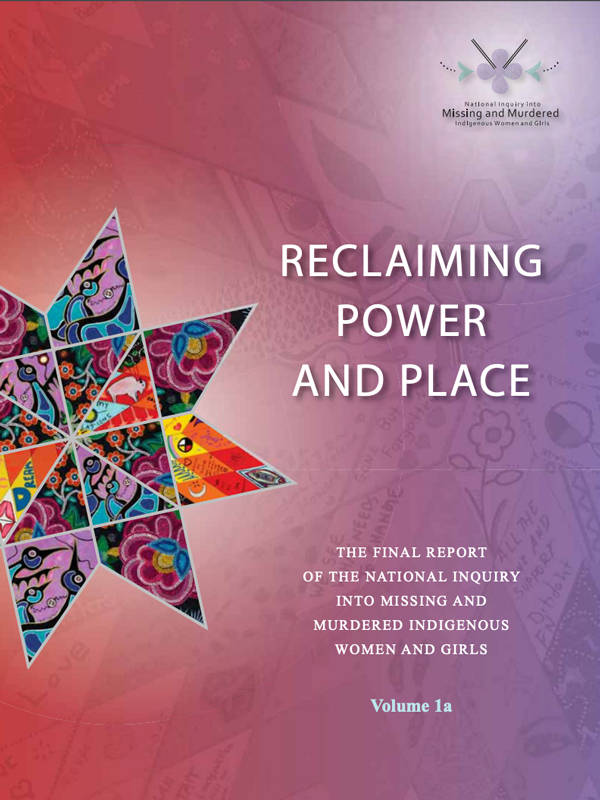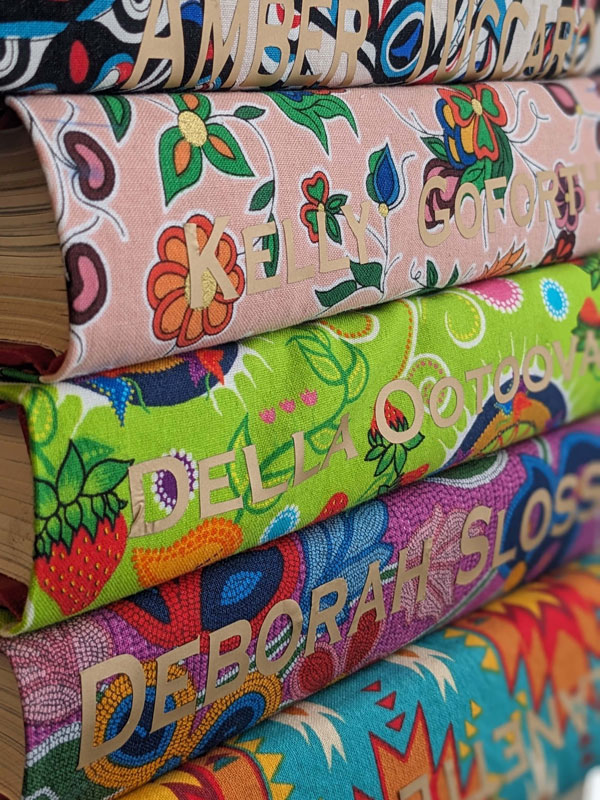Join us to observe Red Dress Day on May 5

May 5 marks Red Dress Day, also known as the National Day of Awareness for Missing and Murdered Indigenous Women and Girls and Two-Spirit People (MMIWG2S). On this day, we honour the memory of Indigenous women, girls and two-spirit individuals who have gone missing or have been found murdered in communities across Canada. Many cases remain unresolved.
The historic and current rate of violence against Indigenous women and girls is a national tragedy that we cannot ignore and urgent action is required to address the root causes of violence against Indigenous women, girls and two-spirit people. All people deserve to live in safety, free of violence and abuse.
The origins of Red Dress Day
In 2010, Métis artist Jamie Black launched the REDress Project, strategically displaying hundreds of red dresses in public spaces to symbolize the absence of Indigenous women and girls who have gone missing or been murdered, aiming to raise awareness about this pressing issue.
Learn more about Jamie Black’s REDress Project (external link) .
Over the last few years, Red Dress Day has gained recognition nationwide. Commemorations include wearing red, hanging red dresses and holding marches, processions and vigils.
“This issue around missing and murdered Indigenous women and girls didn’t just crop up a couple of years ago...this has actually been a problem since contact.”
—Dr. Pamela Palmater, Professor and Chair in Indigenous Governance, Faculty of Arts
Responding to calls for justice directed at educators
In 2019, Reclaiming Power and Place: The Final Report of the National Inquiry into Missing and Murdered Indigenous Women and Girls (external link) was published, including 231 individual calls for justice directed at governments, institutions, social service providers, industries and all Canadians. In the report, you’ll learn how these calls for justice are “legal imperatives” and are important ways all people can work to “end the genocide and transform systemic and societal values that have worked to maintain colonial violence.”
At TMU, we are raising awareness about Red Dress Day and MMIWG2S while responding to the calls for justice directed at educators (11.1 and 11.2).

“We call upon all elementary, secondary and post-secondary institutions and education authorities to educate and provide awareness to the public about missing and murdered Indigenous women, girls and 2SLGBTQQIA people, and about the issues and root causes of violence they experience. All curriculum development and programming should be done in partnership with Indigenous Peoples, especially Indigenous women, girls and 2SLGBTQQIA people. Such education and awareness must include historical and current truths about the genocide against Indigenous Peoples through state laws, policies, and colonial practices. It should include, but not be limited to, teaching Indigenous history, law and practices from Indigenous perspectives and the use of Their Voices Will Guide Us with children and youth.”
“We call upon all educational service providers to develop and implement awareness and education programs for Indigenous children and youth on the issue of grooming for exploitation and sexual exploitation.”
How you can observe Red Dress Day and honour MMIWG2S
1. On May 5, wear red
On May 5, wear red to showcase your support of MMWIG2S and help to raise awareness of the importance of Red Dress Day.
Why red?
In 2023, Lori Campbell, Métis-Cree leader at University of Regina said it best: “We say the spirits that have passed see bright colours the best, red in particular. So hanging the red dresses helps lost spirits find their way home to their loved ones.”


2. Educate yourself about MMIWG2S
Educate yourself by delving into accurate sources about MMWIG2S. Suggested resources to explore:
- AJ+ | Canada's missing and murdered Indigenous women (external link)
- Assembly of First Nations | Explore MMIWG (external link)
- Brianna Olson-Pitawanakwat and Cyndy Baskin | In Between the Missing and Murdered: The Need for Indigenous-Led Responses to Trafficking (external link)
- CBC Kids | Red Dress Day: What it is and how it began (external link)
- Courtney Skye | Yellowhead Institute: Can the Missing and Murdered Indigenous Women and Girl’s Inquiry be Reclaimed? (external link)
- Dr. Pamela Palmater | Series of 13 educational videos to help you understand the Missing and Murdered Indigenous Women and Girls National Inquiry (external link)
- KAIROS Canada | Missing and Murdered Indigenous Women Advocacy and Action (external link)
- Jamie Black | The REDress Project (external link)
- National Inquiry into Missing and Murdered Indigenous Women and Girls | Reclaiming Power and Place: The Final Report of the National Inquiry into Missing and Murdered Indigenous Women and Girls (external link)
- National Museum of the American Indian | The REDress Project (external link)
- Native Women's Association of Canada | MMIWG2S+ and Violence Prevention (external link)
- Native Women's Association of Canada | (PDF file) Building on the legacy of the NWAC Faceless Doll Project - Create your own Faceless Dolls (external link)
- Nickita Longman | Yellowhead Institute: MMIWG2S+ and the Failure of Policing (external link)
- Shades of Our Sisters | Online exhibit (external link)


3. Check out the TMU Libraries' micro gallery
Check out the micro gallery at TMU Libraries, a gallery composed of books wrapped in fabric sourced from Indigenous vendors in honour of missing and murdered Indigenous women, girls, men and two-spirit people.
Located in the Ronald D. Besse Information and Learning Commons on the main floor of the Library, the micro gallery is part of The Canadian Library Project, which currently consists of micro galleries installed at various locations across Canada.


4. Visit the Red Dress Exhibit | Msko-mjigoodenh Zhinoomaagewin on Gould Street
Visit the Red Dress Exhibit | Msko-mjigoodenh Zhinoomaagewin on Gould Street on Sunday, May 5 and Monday, May 6. Learn more about the exhibit:
- Event Title:Red Dress Exhibit | Msko-mjigoodenh ZhinoomaagewinEvent Summary:All community members are invited to visit and observe the Red Dress Exhibit to honour the memories of missing and murdered Indigenous women, girls and Two-Spirit people across Canada.
For more information of the outdoor exhibit, including if you would like to help with installation and take down, please contact Crystal Osawamick, E-nankiid Anishinaabe Maawnjidowinan miiniwaa shki-maajiishkaachiganan, Manager of Indigenous Events and Special Projects, at crystal.osawamick@torontomu.ca.

5. Be prepared to support and provide flexibility
Members of the TMU community may request time to observe Red Dress Day. We encourage teams, colleagues and leaders to collaborate with individuals seeking flexibility to explore ways to offer support.


Have a red dress to donate to the exhibit?
You’re invited to donate red dresses for the Red Dress Exhibit.
| Drop-off dates | Drop-off times | Location |
|---|---|---|
| Thursday, April 25 | 9 a.m. to 12 p.m. | KHW-366 |
| Thursday, April 25 | 12 p.m. to 4 p.m. | KHW-366-A |
| Thursday, May 2 | 9 a.m. to 12 p.m. | KHW-366 |
| Thursday, May 2 | 12 p.m. to 4 p.m. | KHW-366-A |
If you wish to loan a dress and have it returned to you, please affix a note to your dress. It can be picked up at KHW-366A on May 7 onwards.
About this e-campaign
This e-campaign was developed by members of the Rebirthed Teachings Community Learning Circles, in partnership with the Centre for Excellence in Learning and Teaching (CELT), Indigenous Initiatives in the Office of the Vice-President, Equity and Community Inclusion (OVPECI), the Library and the President’s Office.
Rebirthed Teachings was established to provide the TMU community with educational offerings as one of many portals to the Indigenous community at TMU. Hosts and participants of our educational offerings are engaged using a holistic four step aftercare approach as they progress on their learning journey. Rebirthed Teachings is a part of Indigenous Initiatives in the OVPECI.
Get support
If you require immediate emotional assistance, call 1-844-413-6649, an independent, national, toll-free support call line that provides support for anyone who requires assistance. This line is available free of charge, 24 hours a day, 7 days a week.
Questions?
If you have any questions, please email Amy Desjarlais, Lead Facilitator, Rebirthed Teachings, Indigenous Initiatives, OVPECI at amy.desjarlais@torontomu.ca.